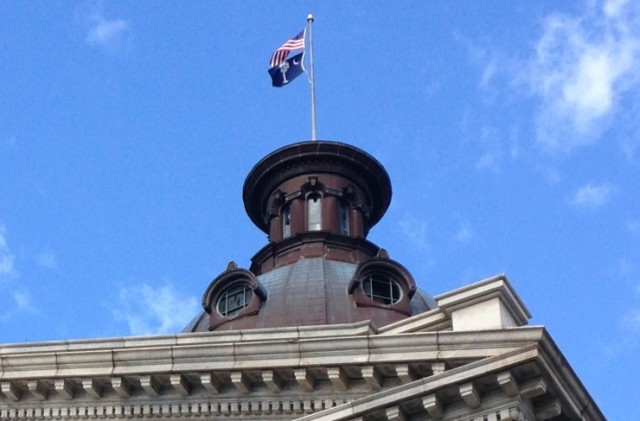
Yesterday, the General Assembly met to pass a continuing resolution to ensure that state government will be funded through the end of the fiscal year in June and until they pass a full budget. Instead, the House and the Senate ended up passing two separate continuing resolutions, which are identical except for provisions regarding Santee Cooper.
Neither of these resolutions can take effect until passed by the opposite chamber, and as of yet, neither chamber has announced plans to reconvene for that purpose.
The two resolutions agree on the following items:
- Continue funding state government based on last year’s budget.
- Direct $180 million in state surplus funds into a new “COVID-19 Response Reserve account” to be used for pandemic expenses, including funding to keep hospitals from closing and satisfying the state’s debt obligations. $15 million can go to election safety measures.
The funds in this account would be spent by the governor, but only after he submits his spending plan to the Joint Bond Review Committee (JBRC – a ten-member legislative board selected by legislative leaders). - Create a new fund – the “Coronavirus Relief Fund” – to house the roughly $2 billion in federal COVID-19 relief funds to be received by the governor, which he can spend only after submitting his spending plan to the JBRC. A monthly report of spending from this fund must be published on the governor’s website.
- Authorize spending to conduct the 2020 election (primary, runoff and general), including health and safety measures.
- Allocate $20 million of state surplus dollars to the Disaster Trust Fund for matching federal disaster relief funds.
- Authorize state agencies to receive federal funds.
- Strike the requirement that colleges and universities almost entirely freeze tuition fees for in-state students in order to keep their funding increases in last year’s budget.
- Allow state agencies to furlough employees, but the employees would continue to enjoy all benefits except their salaries. The state agencies would also pay the employee contributions to the pension plan for furloughed employees, if needed to continue coverage.
- Suspend this year’s employer and employee pension contribution increase.
- Freeze teacher raises until the budget passes.
- Allow the state superintendent of education a number of emergency powers, authorizing her to:
- Waive statutory requirements for things like testing
- Include days when “good faith” instruction for distance-learning in the 180-day total
- Give financial flexibility to school districts
- Carry forward funds
Santee Cooper – House version
The House continuing resolution would order Santee Cooper not to do anything that would undermine the General Assembly’s process of considering a sale (as well as extending the provisions of the resolution laying out the sale consideration process), although they may implement provisions of the lawsuit settlement as long as it doesn’t conflict with any of this. Specifically, they must:
- Operate within the 2019 budget
- Refrain from entering contracts that would last longer than a year, except as needed for operational purposes
- Notify and consult the governor, House speaker, Senate president, and chairmen of the House Ways and Means and Senate Finance committees
- Refrain from entering executive management employment contracts for longer than six months
Santee Cooper – Senate version
The Senate continuing resolution also orders Santee Cooper not to do anything to undermine the process of considering a sale, but would give Santee Cooper a lot more leeway than the House version. Specifically, Santee Cooper could:
- Build new power generation and enter long-term contracts with the permission of the governor, House speaker, Senate president, and chairmen of the House Ways and Means and Senate Finance committees
Also, Santee Cooper would have to notify and consult the governor and legislative leadership before signing any contracts that last longer than six months.
- Procure 100 megawatts of combustion turbines, but only with Central Electric Cooperative’s approval
- Deploy new solar generation, but only with Central’s approval
- Enter joint agreements with “neighboring utilities” for up to one year
- Strike gas/coal agreements, purchase power as needed for the duration of the Cook settlement rate freeze
- Borrow, as needed
- Settle outstanding lawsuits
- Do whatever is prudent and consistent with best practices to manage the COVID-19 pandemic
- Continue appropriate resource discussions with Central
- Do whatever the court or Cook settlement requires, as long as it doesn’t include construction or long-term contracts/hiring
Another major difference is that the House’s prohibitions for Santee Cooper would last until the end of June, 2021 (or until the General Assembly passed additional legislation), but the Senate’s would last only through September 24, 2020.
Click here to read the House version, and click here to read the Senate version.
